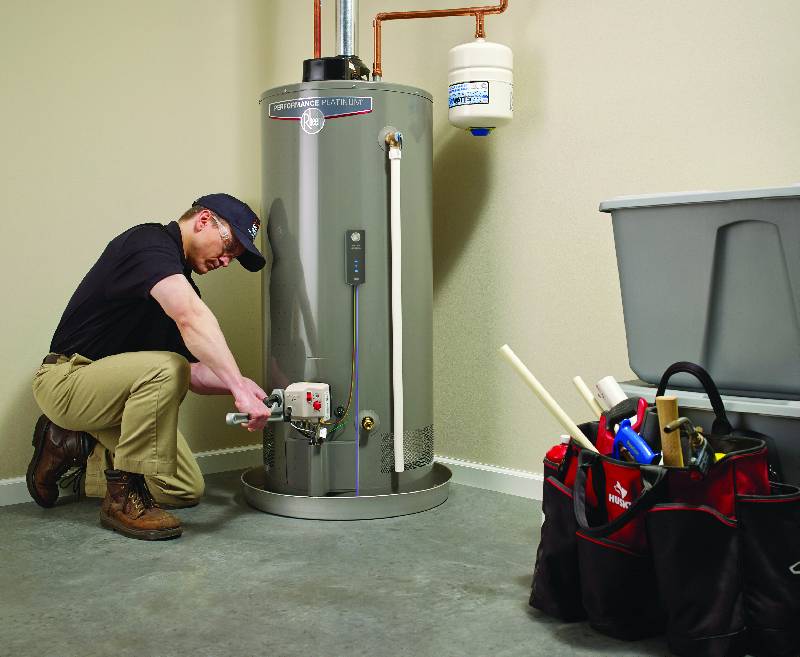They are making a number of great annotation regarding Water Heater Repair and Troubleshooting in general in the article following next.

Think of starting your day without your routine warm shower. That currently sets a poor tone for the rest of your day.
Every residence needs a reliable water heater, yet just a couple of understand just how to take care of one. One simple way to maintain your water heater in leading shape is to look for mistakes routinely as well as fix them as quickly as they appear.
Remember to turn off your hot water heater before sniffing around for faults. These are the water heater faults you are more than likely to come across.
Water too hot or also cold
Every water heater has a thermostat that establishes how hot the water gets. If the water entering your home is too hot in spite of establishing a convenient maximum temperature level, your thermostat could be faulty.
On the other hand, also cold water might result from a failed thermostat, a busted circuit, or inappropriate gas flow. For instance, if you use a gas water heater with a broken pilot light, you would certainly obtain cold water, even if the thermostat remains in excellent problem. For electric heaters, a blown fuse may be the culprit.
Not nearly enough hot water
Water heaters been available in many dimensions, relying on your hot water needs. If you lack hot water prior to everyone has had a bath, your hot water heater is as well tiny for your family size. You ought to consider mounting a bigger water heater storage tank or selecting a tankless hot water heater, which takes up less room and also is a lot more sturdy.
Weird noises
There go to the very least five kinds of sounds you can speak with a water heater, yet the most usual interpretation is that it's time for the water heater to retire.
To start with, you need to be familiar with the typical appears a water heater makes. An electrical heating system might seem various from a gas-powered one.
Standing out or banging sounds typically suggest there is a slab of sediment in your tanks, and it's time to cleanse it out. On the other hand, whistling or hissing audios might simply be your valves allowing some pressure off.
Water leakages
Leakages might originate from pipes, water connections, shutoffs, or in the worst-case circumstance, the tank itself. In time, water will certainly wear away the tank, and discover its escape. If this takes place, you need to change your hot water heater as soon as possible.
Nevertheless, prior to your change your entire tank, make sure that all pipes remain in area which each valve functions flawlessly. If you still require assistance determining a leak, call your plumber.
Rust-colored water
Rust-colored water means one of your water heater elements is rusted. Maybe the anode pole, or the storage tank itself. Your plumber will certainly be able to recognize which it is.
Warm water
No matter how high you set the thermostat, you will not get any kind of warm water out of a heating unit well past its prime. A hot water heater's efficiency might lower with time.
You will certainly additionally get warm water if your pipes have a cross link. This suggests that when you turn on a tap, hot water from the heater moves in along with normal, cold water. A cross link is simple to place. If your warm water faucets still run after shutting the hot water heater valves, you have a cross link.
Discoloured Water
Rust is a major root cause of filthy or discoloured water. Deterioration within the water storage tank or a falling short anode pole could cause this discolouration. The anode pole safeguards the tank from rusting on the within and ought to be inspected yearly. Without a pole or a properly operating anode pole, the hot water quickly corrodes inside the container. Contact a professional hot water heater professional to establish if replacing the anode pole will fix the trouble; if not, change your water heater.
Final thought
Ideally, your water heater can last one decade prior to you need a modification. Nevertheless, after the 10-year mark, you might experience any of these mistakes more on a regular basis. At this moment, you need to add a brand-new water heater to your budget plan.
How To Troubleshoot 3 Common Water Heater Problems in Twin Cities
The Water Heater Is Leaking
A leaky cold water inlet valve A loose pipe fitting A leaky temperature and pressure relief valve A corroded anode rod A cracked tank Turn Off Your Water Heater:
Shut off your gas water heater by turning the gas valve on the unit to the “OFF” position. Shut off your electric water by switching its power off at your electrical panel. Look for a two-pole breaker labeled “water heater” and turn it to the “OFF” position. Move the ball valve connected to the water heater to be perpendicular to the piping at a 90° angle. Look for the Leak:
Depending on whether the water is coming from the tank's top or bottom, you’ll want to look for the leak in different locations.
If the leak comes from the top of the tank, carefully look for water escaping from the cold water inlet valve or loose pipe fittings. Rusted hot and cold water valves can have loose connections with the tank, with water leaking out of them.
https://mspplumbingheatingair.com/blog/how-to-troubleshoot-3-common-water-heater-problems
As a fervent reader on Common Problems with Your Home Water Heater, I was thinking sharing that piece of content was worthwhile. If you enjoyed reading our blog posting if you please make sure you remember to share it. Many thanks for taking the time to read it.
Get A Quote